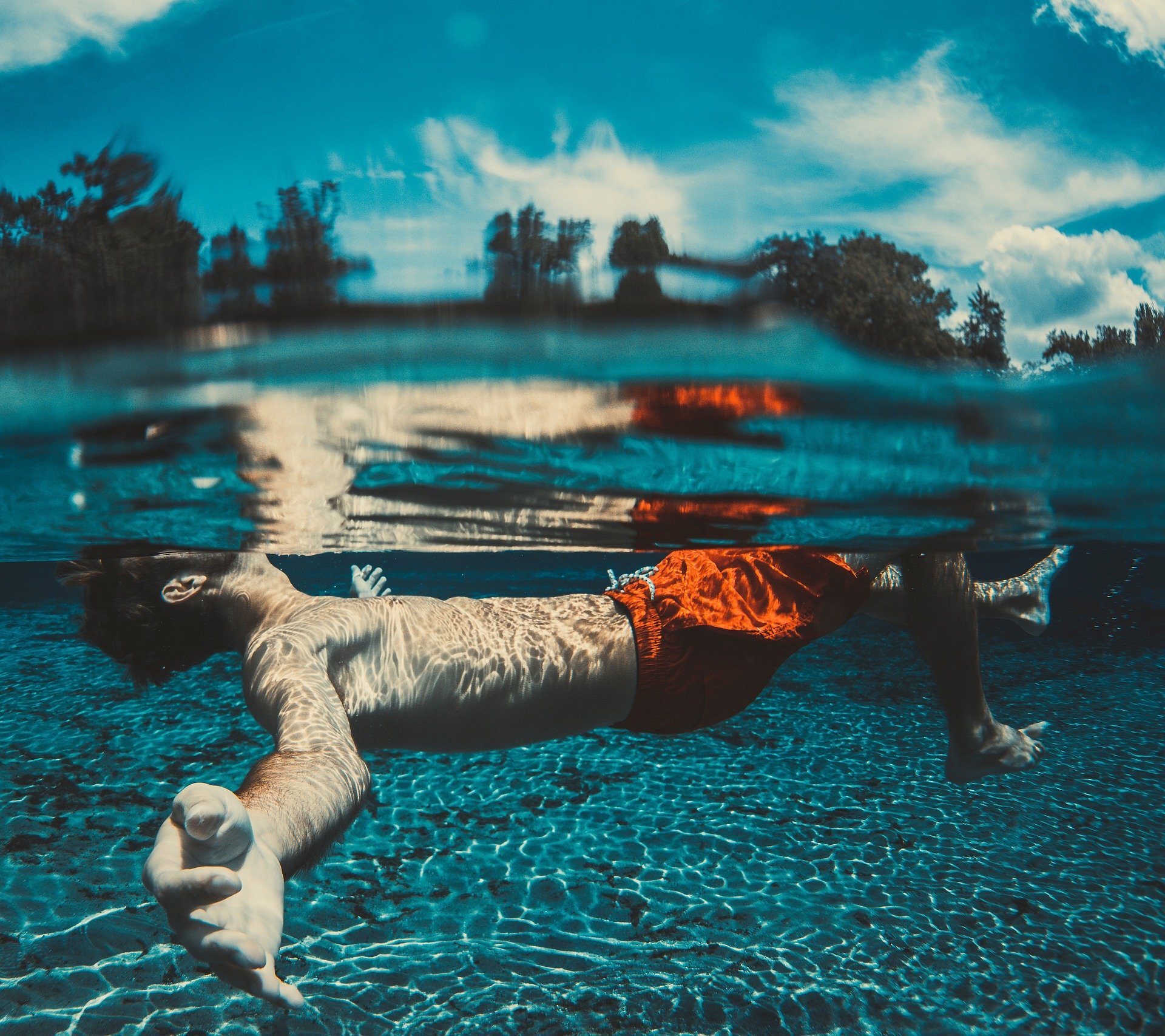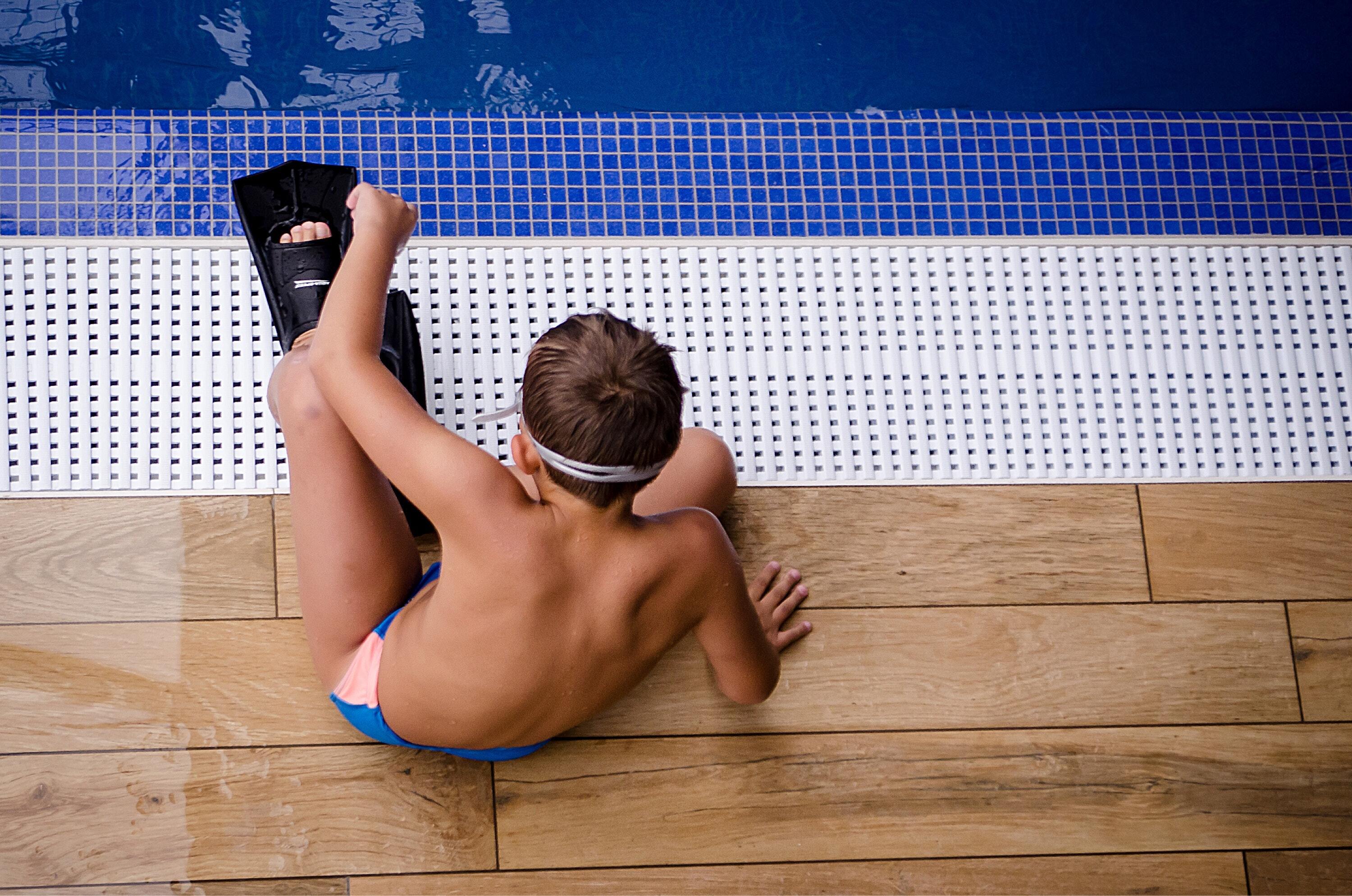Swimming is an important skill for any child to learn and provides a great full body exercise for all swimmers. Children with muscle or joint conditions that make it harder for them to participate in certain sports can benefit from swimming in a unique way. Specifically, children with cerebral palsy, also known as CP, are one group of kids that can benefit greatly from swimming. The following are six reasons that children with cerebral palsy should get involved in swimming lessons.
Cerebral Palsy Water Therapy can Increase Strength:
Children with cerebral palsy often have higher or lower muscle tone that can make it difficult for them to move their joints. Being in the water can often allow children to achieve movements that they are unable to on land. The weightless feeling of floating in water in combination with the amount of the resistance that the water provides can help children to achieve new movements and strengthen muscles in a way that they may not be able to on land. If your child has hit a plateau in their muscle development, give swim lessons a try!
See the Benefits of Aquatic Therapy for Cerebral Palsy on Land:
The physical benefits of learning new motions in the pool often translates to improved motion on land. This means that by enrolling your child in swimming lessons can help them with things like standing, walking, and even feeding themselves outside of the pool! There are also many skills that can be practiced both on land and in the water, such as walking, jumping, and doing flutter kicks. Practicing these skills in both places can further increase the development of the skills. Talk to your special needs swim lesson instructor to pick things that your child can practice outside of the pool to prepare for swim lessons!
Comfortable Environment:
Children with cerebral palsy may have challenges with physical activity balancing while standing, walking, or running on land. This can cause anxiety or fear for the child or the caregivers as they are scared that they may have a fall. This can cause children with cerebral palsy to avoid exercise or sports that put them at risk for falling. When your child is in the water with an instructor or another adult, they are in a safe and comfortable environment that allows them to exercise without being afraid or falling. This can also make them feel more successful and improve their confidence. Flotation devices can also be utilized to make your child feel safer in the water. Even with the use of a flotation device, it is important that an adult that knows how to swim is close by in the water with the child.
Cerebral Palsy Swimming Exercises provide Core Strengthening:
Swimming is a full body workout, including the core, which is made up of muscles that are important for daily activities. Taking swimming lessons, aqua therapy or even just playing in the pool can help to strengthen the core and trunk muscles. Children with cerebral palsy can greatly benefit from strengthening these muscles and improving their posture through aquatic exercise programs. Strengthening the core can help a child meet milestones such as sitting up, standing, and walking. Improving posture can also help to improve breathing and swallowing in children. Swimming a few times a week may help to improve all of these skills for children with cerebral palsy.
Social Opportunities from Cerebral Palsy Swimming Lessons:
Swimming lessons can be adapted to anybody’s abilities and provides a great opportunity to develop new skills, both physically and emotionally. Learning how to swim opens up social opportunities that may not have existed prior to learning how to swim for children of all abilities. Once children learn to swim, they will feel comfortable going to play at the pool with friends or go to a birthday party at a swimming pool.
Lifelong Fitness
Learning to swim also lays the foundation for developing lifelong fitness skills, an important skill development for children with cerebral palsy. Children have the opportunity to join a community swim league or a local Special Olympics club to continue to develop their swimming and social skills.
Every child with cerebral palsy has unique strengths and needs and it is important that these are addressed during each swimming lesson. Make sure you share with your instructor what motivates your child and any tips for them to be the most engaged. Your swim instructor wants to see your child succeed and will work with you to structure the lessons in the best way for you and your child. Swimming lessons can be a great supplement to your child’s own therapeutic exercise program. Your child’s physical or occupational therapist may be able to provide specific recommendations for participating in swimming lessons or adaptive equipment that can help your child succeed in swimming lessons.
Share these recommendations with your swim lesson instructor to make swimming lessons a new therapeutic and fun experience!
Learn more about our swimming lessons for children with cerebral palsy and bring the swim school to your pool today!
Melanie Watt’s bio:
Swim Instructor in Baltimore, MD
Hi, my name is Melanie and I've been teaching swim lessons and coaching swim teams for eight years! I have experience teaching infants as young as 6 months all the way up to adults. I also have extensive experience working with swimmers with special needs. I have a degree in health sciences and I am currently finishing up my master’s degree in occupational therapy. I love teaching swimming because I love seeing progress whether it be being comfortable putting your face in the water or learning a new stroke!
ABOUT SUNSATIONAL SWIM SCHOOL
Sunsational Swim School is the 🥇 #1 rated provider of private, at-home swimming lessons in America. We have specialized swim instructors for students ages 6 months to adult, beginner to advanced. Featured on ABC, CBS, Impact 100, The List and others, Sunsational instructors have a minimum of 2 years of teaching experience, are CPR certified and insured, and have collectively taught over 302,223 lessons for more than 74,415 students nationwide!




